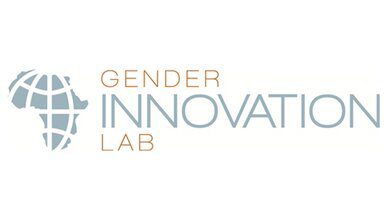Application Deadline: January 8th 2021
Seeking NGOs, governments, donors, and private sector firms with interventions designed to improve women’s economic empowerment in Nigeria.
The GIL works to generate evidence on how to close gender gaps in five thematic areas: land and property rights, agriculture, youth employment and social protection, entrepreneurship, and social norms. In close collaboration with partners, the GIL designs, launches, and oversees rigorous impact evaluations of interventions. These interventions are typically carried out by NGOs, governments, and private sector programs, policies, and products.1 Each GIL impact evaluation aims to generate evidence on what works best to close key gender gaps and relax identified constraints to women’s economic empowerment. Each GIL impact evaluation is carefully selected to probe critical knowledge gaps and to meaningfully inform policymakers and project teams.
Each successful applicant will meet all four criteria below:
• Be an NGO, government, donor, or private sector firm.
• Have a new or existing intervention, which they are planning to roll-out or scale-up; that could help strengthen women’s economic empowerment in rural Nigeria; and for which the organization has already secured any necessary funding.
• Be interested in gaining insights into how and why their intervention is working through a scientifically sound, quantitative impact evaluation.
• Be interested in strengthening their intervention’s design towards more effectively serving women.
During 2020-2021, GIL plans to launch a new set of impact evaluation (IE) studies that evaluate interventions aimed at easing constraints faced by women in rural Nigeria. Specifically, through our analytical work, GIL has identified the following key constraints driving gender gaps in income from economic activities in Nigeria: limited crop choice, access to inputs, labor and mechanization for women farmers; access to capital stock and position in the value chain for women entrepreneurs; sectoral
segregation for female wage earners; and time availability for all working women.
EOI Selection Criteria
a. Geographical Fit: Will the intervention take place in rural Nigeria? GIL works across Sub-Saharan Africa but only interventions in rural Nigeria will be eligible for evaluation under this expression of interest call.
b. Project Fit: Is the intervention a new or existing intervention with the potential to strengthen women’s economic empowerment in rural areas?
c. Potential to Probe Critical Knowledge Gaps: Will an impact evaluation of the intervention help answer one or more of the priority questions (listed above)?
d. Project Partner’s Capacity and Risk Factors: Does the prospective partner have proven capacity to successfully carry out the type and scale of intervention that it is proposing? Does the partner have funding already secured to carry out the intervention? Is the environment going to be sufficiently secure within the timeframe of the project to not impede or undermine the impact
evaluation?
e. Organizational Commitment to Learning: Partnering with researchers for a rigorous impact evaluation requires a sustained and deep-seated commitment, including buy-in from the partner’s senior leadership, program managers, and sometimes, key stakeholders, including donors. It also requires a true interest in learning how one’s programs are working and letting this
information become publicly available when the results of the impact evaluation are published and presented.
Finally, the organization and project implementation team must be willing to work constructively on an impact evaluation, including potential changes to implementation plans.
For More Information:
Visit the Official Webpage of the World Bank Africa Gender Innovation Lab

